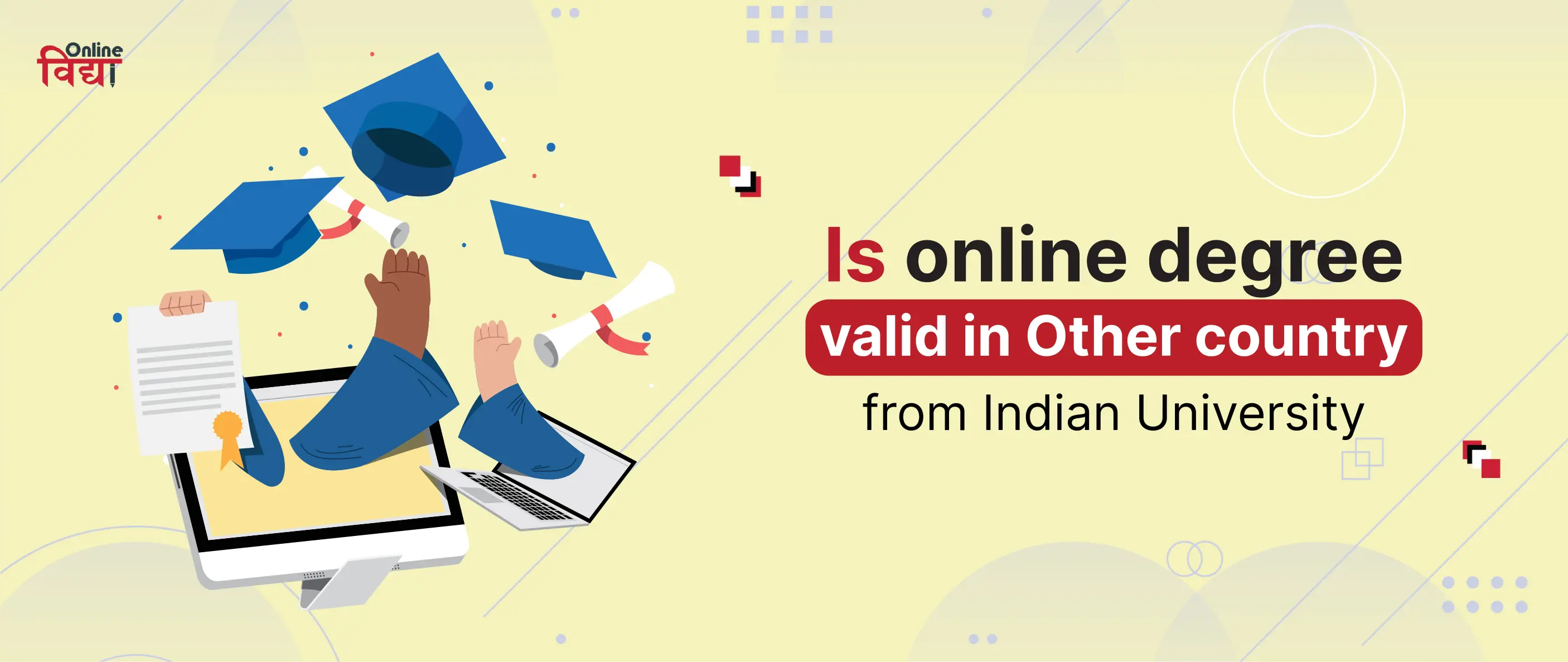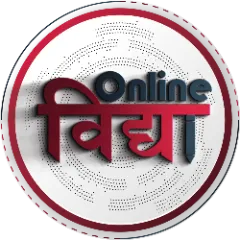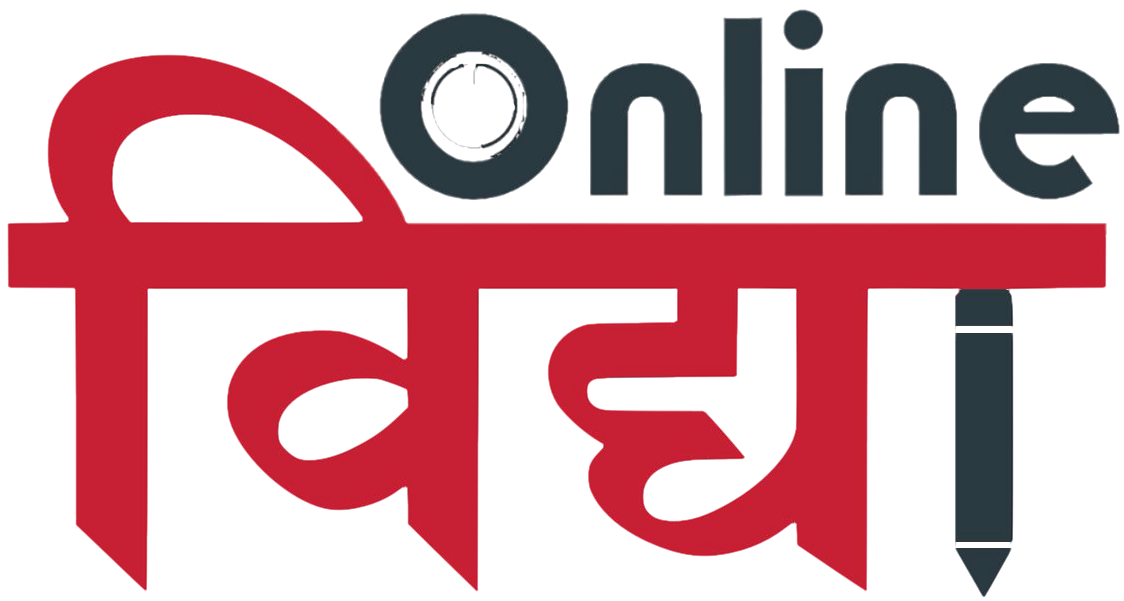Specializations
Courses Available
Courses

Is an online degree valid in another country from an Indian University?
Is an online degree valid in another country from an Indian University?,Feb 19, 2024
Information
Feb 19, 2024
7440 Views
- Share:
The landscape of education is continually evolving, especially with the rapid advancements in technology. The COVID-19 pandemic accelerated the evolution of online learning, pushing several universities/ educational institutions around the globe to shift from traditional in-campus educational modes to online and distance modes of learning. Indian universities were no exception, and this shift has led to a significant question among students and professionals alike: "Is an online degree obtained from an Indian University valid in another country?" This blog post aims to explore this question in depth, touching on vital aspects such as AICTE, UGC, and DEB, and the distinction between online and distance modes of learning, especially in the context of the COVID period.
Also Read: 11 Exciting MBA HR Project Ideas & Topics For Beginners [2024]
What is an Online Degree
An online degree is a qualification earned through internet-based learning programs which is commonly known as online learning offered by accredited colleges or universities. Unlike traditional degrees obtained through on-campus attendance, online degrees provide the flexibility to study from anywhere, at any time, making higher education more accessible to a broader audience, including working professionals, parents, and those living in remote areas. These programs utilize digital platforms for course delivery, including video lectures, online discussions, and digital assignments, ensuring that students receive the same quality of education and degree recognition as their on-campus counterparts. Online degrees cover a wide range of fields, from business and technology to healthcare and the arts, catering to diverse interests and career goals.
The Transition to Online Learning
The sudden onset of the COVID-19 pandemic in early 2020 led to unprecedented changes in the education sector worldwide. Indian universities, known for their rigorous on-campus classroom-based courses, made a swift transition to online learning. This shift was not just a temporary arrangement but a glimpse into the future of education.
Online vs Distance Learning
Online Learning: Online Learning involves courses delivered in real-time through the Internet, with interactive sessions between teachers and students.
Distance Learning: Distance learning often comprises pre-recorded lectures or written materials sent to students, with lesser real-time interaction.
The importance of understanding this distinction lies in the recognition and validation of degrees. Generally, online learning, with its interactive components, is viewed more favorably by educational authorities and employers abroad.
Recognizing Indian Online Degrees Abroad
Accreditation plays an important role in the international recognition of degrees. In India bodies like the All India Council for Technical Education (AICTE), the University Grants Commission (UGC), and the Distance Education Board (DEB) are some crucial bodies that provide accreditation to universities or colleges of online and distance modes of learning programs.
Where the All India Council for Technical Education (AICTE) focuses on the quality of technical education in India, The University Grants Commission (UGC) is a statutory body that is responsible for setting and maintaining standards for university education in India, and the Distance Education Board (DEB) is a bureau that falls under the UGC and is responsible for looking after the distance education programs in India in different disciplines.
Universities and programs accredited by these bodies are more likely to be recognized internationally. However, the recognition also depends on the country's policies regarding foreign degrees and the institution’s global standing.
Also Read: Verified & Updated List of UGC/DEB Approved Universities for Distance Courses 2024
Factors to be taken into consideration while enrolling in an online mode of learning
Accreditation: Before enrolling in an online program, candidates are advised to ensure that the university/ institution and program they are enrolling in are accredited by recognized bodies such as AICTE, UGC, NAACA+), NIRF, and DEB to guarantee quality and recognition.
Reputation: Learners should research the reputation of the university and its online programs, including faculty expertise and alumni success.
Curriculum: Candidates should evaluate the curriculum for relevance before taking admission to a particular university or college. They also scrutinize the depth and alignment with personal and professional goals.
Support services: Assess the availability of academic advising, technical support, and other student services crucial for a smooth learning experience.
Flexibility: Consider the flexibility of scheduling and pace of learning to accommodate personal and professional commitments.
Cost and financial aid: Compare tuition fees, additional costs, and availability of scholarships or financial aid options.
Technology requirements: Confirm compatibility with required technology and infrastructure for online learning.
Alumni network: Explore the strength and reach of the institution's alumni network for potential networking and career opportunities.
International Acceptance of Indian Online Degrees
The global acceptance of online degrees from Indian Universities varies from one country to another and from one sector to another. Countries with stringent higher education policies might scrutinize the accreditation and authenticity of online degrees more than others. However, the apex accreditation bodies of India such as AICTE, NIRFFF, UGC, NAAC, and DEB are well-known globally for their credibility and authenticity. The approval from the Government of India has cleared all the doubts raised against the online degree programs from an Indian University anywhere in the world, If any.
Several Online and Distance Courses are offered by Indian Universities and are AICTE, UGC, and DEB-approved including undergraduate and postgraduate programs and other certification courses as well.
Online UG Courses
Online PG Courses
Also Read: What Is MBA Dual Specialization? – Detailed Guide 2024
Frequently Asked Queries
A1. Recognition of online degrees from Indian universities varies depending on factors such as accreditation and bilateral agreements between countries. It's advisable to research specific recognition guidelines in your target country.
A2. In India bodies like the All India Council for Technical Education (AICTE), the University Grants Commission (UGC), and the Distance Education Board (DEB) are some crucial bodies that provide accreditation to universities or colleges of online and distance modes of learning programs. Where the All India Council for Technical Education (AICTE) focuses on the quality of technical education in India, The University Grants Commission (UGC) is a statutory body that is responsible for setting and maintaining standards for university education in India, and the Distance Education Board (DEB) is a bureau that falls under the UGC and is responsible for looking after the distance education programs in India in different disciplines.

Meet Our Counselling Experts
Get 100% Free Career Counseling




PlacementPartners










Schedule Your 30 min Couselling Session With Today!!
Select a Date of your choice :
You Have Selected Slot on .

